Athens-Clarke County is one of eight local governments in Georgia planning a transition to 100% clean and renewable energy.
Cary Ritzler | October 11, 2022 | Energy Policy, GeorgiaGeorgia communities are leading the way in making sure that all of us have clean air, affordable energy bills, and good jobs that help make our communities healthier and stronger. The unified government of Athens-Clarke County is one of eight local Georgia governments– along with Atlanta, Clarkston, Savannah, Augusta, DeKalb County, Decatur, and Winterville – that have set clean energy targets. Athens-Clarke County resolves to meet all governmental energy needs with clean and renewable energy by 2035, and all community needs by 2050. After passing the resolution in 2019, Athens-Clarke County embarked on two years of public input and community engagement to produce a plan detailing how the city will meet its goal. The plan was adopted on August 2, 2022.
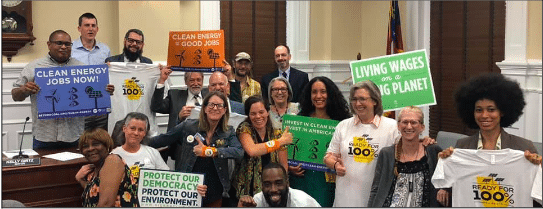
The Athens-Clarke plan uses creative funding ideas and ongoing community input to make sure that every resident can obtain jobs, receive better healthcare, and lower electricity bills. These plan features will not only make their own lives better but also help prepare the community to face the challenges of climate change together.
High energy bills burden residents
Right now, utility companies like Georgia Power and electric membership cooperatives (EMCs) control how most Athens residents get their electricity, how much it costs, and where it comes from. The Georgia Public Service Commission (PSC) makes decisions about how much Georgia Power can raise rates on customers, how customers get paid back for solar electricity they produce on their own roofs, and whether electricity is made from clean and renewable sources like the sun, or dirty and dangerous sources like coal, fossil gas, and nuclear power. EMCs have boards made up of local residents elected by EMC members who make decisions for their areas.
Currently, Athens residents (like people all around the state) pay high bills for electricity. According to the Union of Concerned Scientists (UCS), Georgia residents have the 7th highest electricity bills in the nation. Some Athens residents pay up to 20% of their monthly income for electricity and fossil gas, which doesn’t leave much to pay for important things like housing, food, and medicine.
The Athens Clean and Renewable Energy Plan aims to make sure everyone – whether Black, brown, or white; native Athenian or recent transplant – has clean, affordable energy and healthy air to breathe.
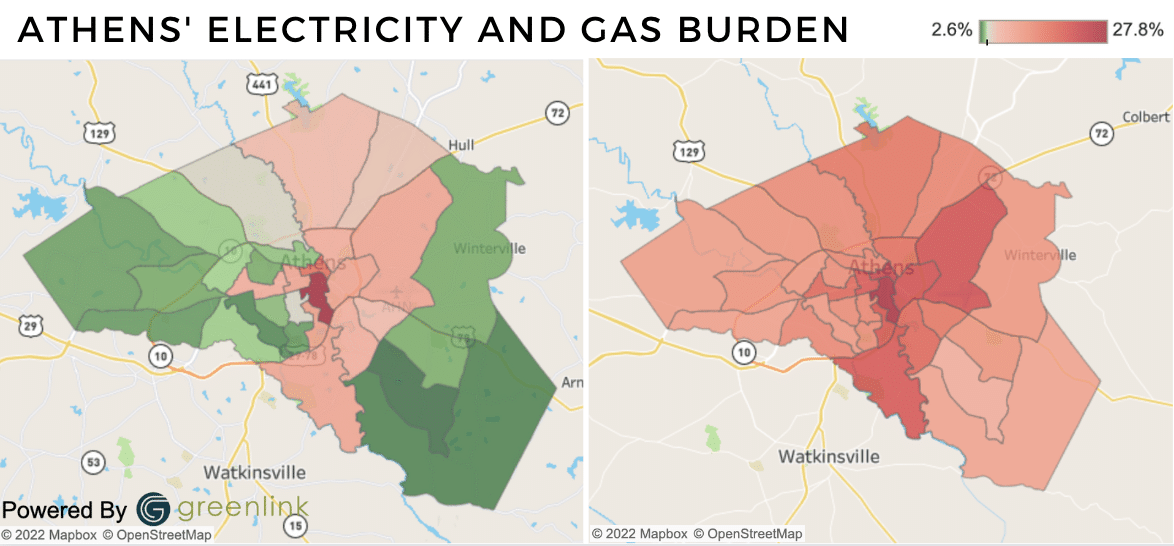
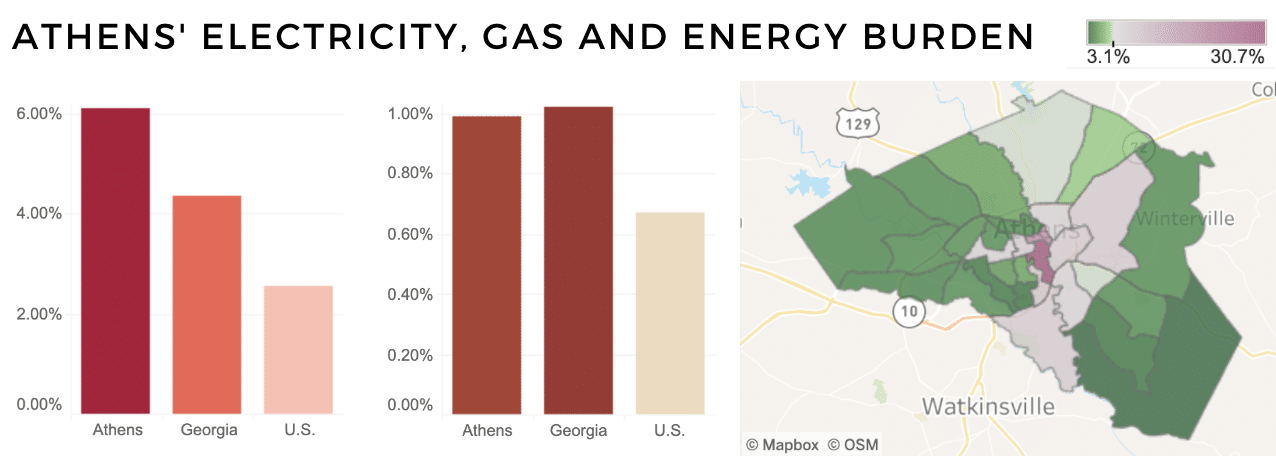
Pathways to a brighter future
The Clean Energy Plan lays out pathways for Athens residents, leaders, and city staff to come together to clean up their own energy grid; create neighborhood programs to make it easier for people to get solar power; and fix up homes to be comfortable, healthy, and efficient – all with lower energy bills. It also guides elected leaders and city staff to fix up old city-owned buildings, replace polluting city-owned vehicles, and install solar panels on city facilities – starting in the most vulnerable neighborhoods. The plan also shows what the Athens-Clarke County government can do by itself, how it can influence major players like Georgia Power, and where the community will need help from the state or federal government.
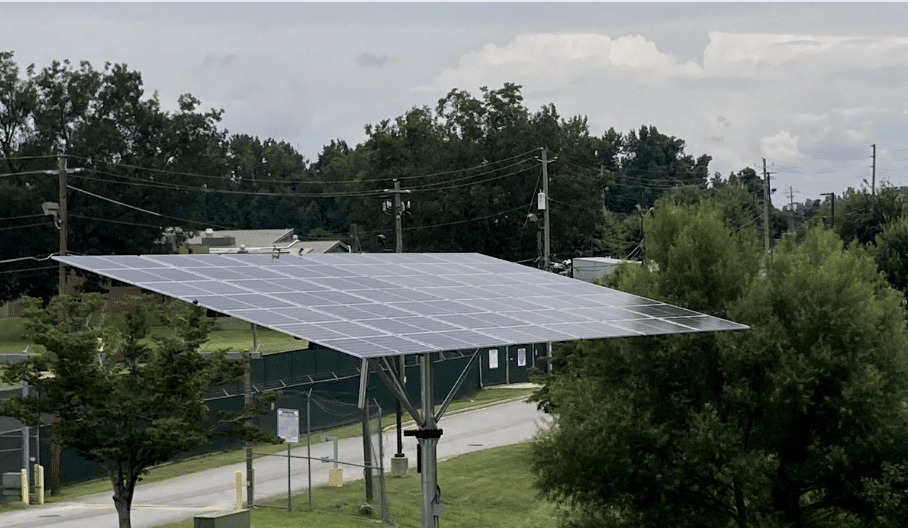
Even though the county just published its plan, local government staff, and community members have already been working hard to get more solar power in the community, help elderly and low-income residents fix up their homes, and make sure community centers can keep the lights on during emergencies. With the plan in place, and with new federal funding available through the Inflation Reduction Act, all of that work can be speeded up.
Penny tax helps vulnerable Athens facilities
One of the first questions people ask about switching homes, buildings, and vehicles to clean energy is: “How much will it cost?” No matter how much the Clean Energy Plan will help people, if we can’t pay for it, it will not happen. In 2019, Athens residents approved the 2020 Special Local Option Sales Tax – a one-penny sales tax that residents vote on every 10 years – which included $15.8 million dollars for clean energy between 2020 and 2030. The Renewable Energy SPLOST creates a gap fund to pay the additional cost to add clean energy infrastructure to city facilities (such as electric car charging stations and on-site solar panels), upgrading fleet vehicles to the most efficient standards available, and retrofitting existing facilities.
The SPLOST funds can also be used to make sure that vulnerable Athens residents are cared for during emergencies. During the summer of 2022, Athens-Clarke County installed two 64-kilowatt solar trackers and a battery backup system at the Family Protection Center, which serves victims of child abuse, domestic abuse, and sexual violence. In the event of a power outage, the battery can power the building for up to three days and nights before the battery needs to be recharged, offering stability for the vulnerable families served by the center during times of emergency. While this project was funded through a grant from the Georgia Energy Finance Agency, this is an example of the kind of projects the city plans. Currently, Athens-Clarke County has plans to put solar panels on six additional city facilities in 2022 using SPLOST funding.
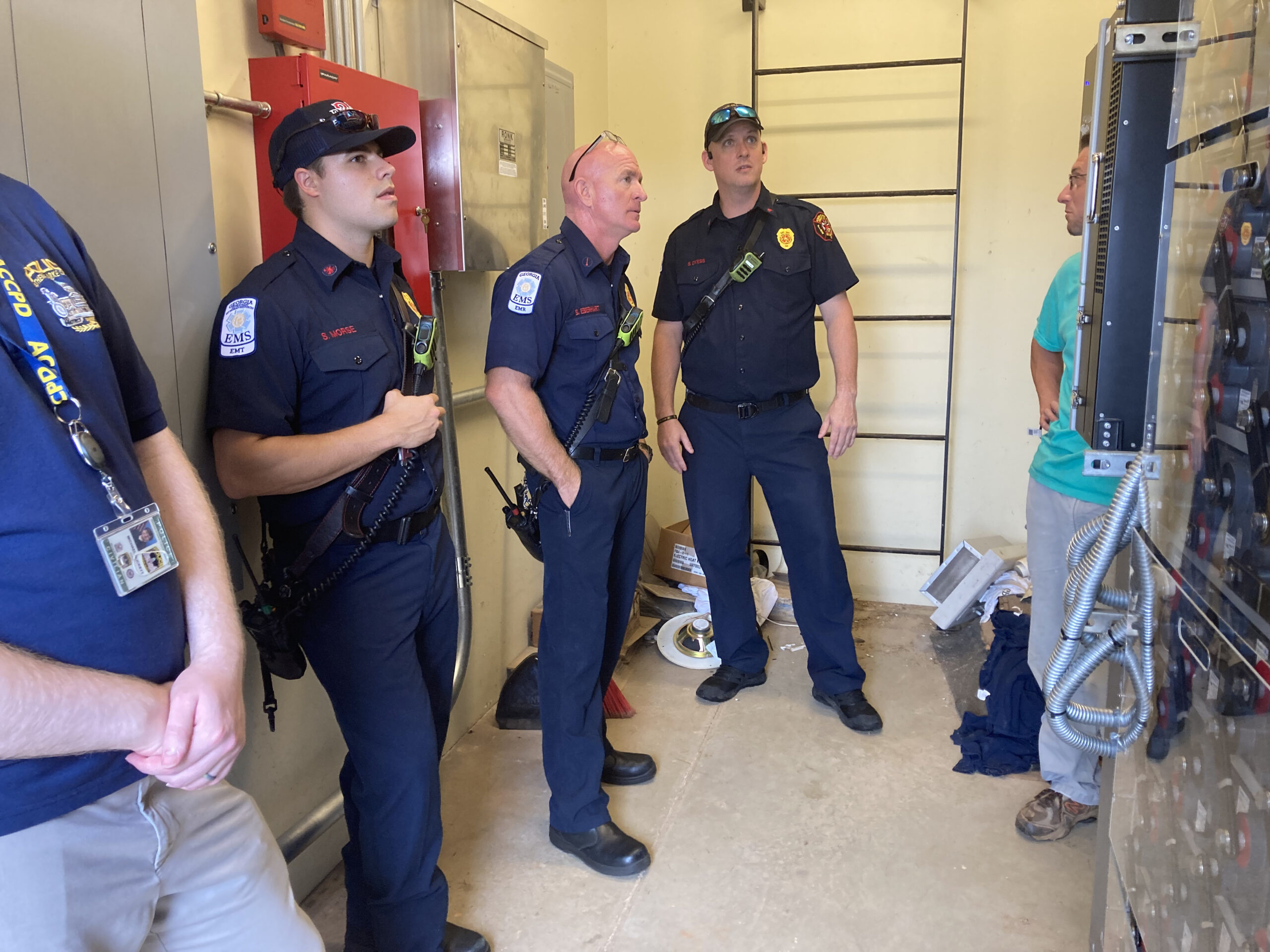
More to do
Athens-Clarke County’s transition to clean and renewable energy will unfold over the next three decades, ultimately aiming for 100% clean and renewable energy by 2050. With many Athens residents currently facing high energy costs and earning low income, there will be challenges along the way while people balance their day-to-day needs with long-term goals. The local government will need to work with the community to identify needs that may be outside the box of what is normally considered to be energy work, but still important to providing healthy and sustainable neighborhoods.
The community will need to stand strong together against the pressures of gentrification, as new green infrastructure can cause real estate prices to rise – benefitting homeowners but disadvantaging renters if rents go up. Displacing residents, beyond the social and moral problems it creates, also adds emissions as people drive further distances to return to the work, school, and social lives that they established in their home communities.
Extreme weather events will increase as the climate continues to warm, and the impacts of more than a century of industrial fossil fuel use will continue for decades even as the economy decarbonizes. These events will harm marginalized communities the most, so it is all the more important for Athens-Clarke County to stay true to their intention to center these groups’ self-identified needs in every decision.
There are many aspects of energy transition that fall outside of local governments’ legal sphere of influence. This year, Athens-Clarke County joined with other municipal governments to intervene in Georgia Power’s Integrated Resource Plan (IRP), and two elected officials from Athens and neighboring Winterville, Georgia called for Federal investments to backstop local efforts. Athens-Clarke County and other local governments will need to continue pursuing policy change at the state and federal level to fill in the gaps where the local government can not take direct action.
Every community member will have a vital role to play. From front yard barbecues to Saturday brunch, faith communities to business groups, the Clean Energy Plan can encourage people in Athens to come together despite differences to talk about how to join together in this work to transform the energy system so that it works for everyone.
Community leaders and residents celebrate progress
The Athens community is wasting no time in launching into the clean energy transformation. On Sunday, September 25, residents and leaders gathered in the East Athens community for a ribbon-cutting to celebrate a rooftop solar donation, completed through the 2020 Solarize Athens campaign, at Rashe Malcolm’s Farm to Neighborhood non-profit.
“This solar array and the savings it will bring to our power bill will help us feed even more hungry neighbors and showcase this amazing technology, that can help fight energy burden, to The East Side.” – Rashe Malcolm, Founder and Executive Director of Farm to Neighborhood
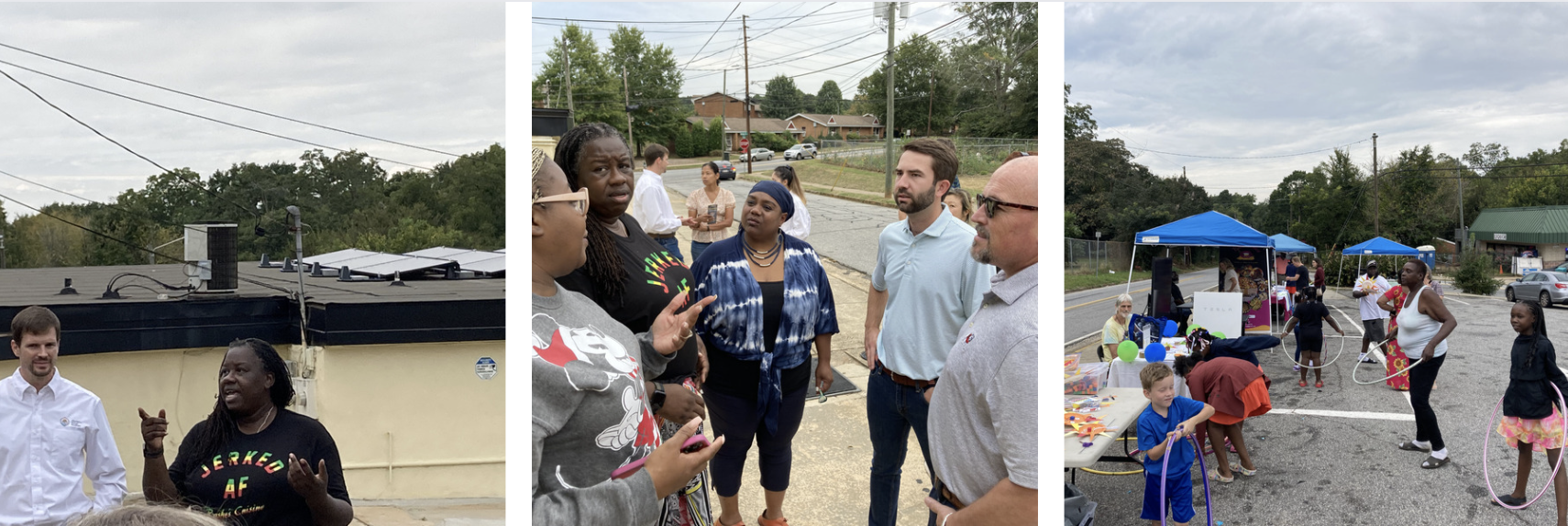
Are you interested in helping us get the word out to Georgians about promoting clean energy and equity? We invite you and your friends, neighbors, or community groups to join our Renew Georgia campaign. The campaign’s focus is to bring us together to be the generation that secures a stable climate and prosperous future through a clean energy transformation that benefits us all.
This blog has been edited. It originally stated that six Georgia cities had set renewable energy goals.